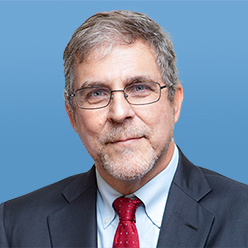Let’s not be too hard on President Biden simply for saying what most people believe.
On Saturday, the president spoke in Warsaw to demonstrate support for Ukraine in its fierce defense against Russian aggression, and to reassure NATO members that the United States would stand by them should the Kremlin choose to extend its war beyond Ukraine’s borders. The 30-minute address stressed themes of freedom, unity, and resistance, and would hardly have been controversial until the last line, when Biden said of Vladimir Putin, “for God’s sake, this man cannot remain in power.”
This statement immediately caused controversy. It is not the kind of thing that world leaders say of each other unless they mean to do something about it. It appeared President Biden was introducing a radical change in U.S. policy and calling for regime change in Moscow.
The White House quickly walked back the comment, denying that it implied overthrowing Putin and implausibly asserting that President Biden meant that the Russian leader “cannot be allowed to exercise power over his neighbors or the region.” If that was what Biden meant, no one heard it that way.
This was not the first cleanup the Biden team had to do on the president’s trip. Asked by reporters at NATO headquarters how the United States would react to Russia using chemical weapons in Ukraine, Biden said, “it would trigger a response in-kind.” Taken literally, this suggested the U.S. would mount a retaliatory chemical strike. White House national security adviser Jake Sullivan assured reporters “the United States has no intention of using chemical weapons, period, under any circumstance.” Later, speaking to soldiers of the 82nd Airborne Division stationed in Poland, Biden appeared to suggest they were headed for Ukraine when he prefaced a comment about the morale of the Ukrainians with, “you’re going to see when you’re there.” The White House clarified, “we are not sending U.S. troops to Ukraine and there is no change in that position.” In the same speech Biden referred to “what we’re doing here in Ukraine,” even though he was in Poland.
So, taken with Biden’s other gaffes, inadvertently calling for regime change in Russia was just one more White House walk-back. But while this may not be the official policy of the United States government, can anyone argue with the sentiment that the world would be a much better place without Putin in power?
The Kremlin response was curt and dismissive. “That’s not for Biden to decide,” Putin spokesman Dmitry Peskov said. “The president of Russia is elected by Russians.” Oh, really? Officially, Putin won the 2018 presidential election handily, though post-election analysis showed 10 million mystery ballots were added to his vote total. The September 2021 Duma election was similarly marked by widespread fraud and intimidation. The Organization for Security and Co-operation in Europe reports that “increasing restrictions on civil society organizations, independent journalists, and opposition groups” has “unfairly advantage[d] pro-Kremlin candidates and marginalize[d] all independent political voices.”
Putin’s regime is, in fact, afraid of the Russian people. That’s why the government has kept the grim realities of the war in Ukraine under wraps. Press coverage cleaves to the official line and independent reporting is forbidden. Referring to the intervention as a “war” is illegal and carries a 15-year prison sentence. Casualty reports are few and unreliable. Anti-war protestors have been arrested and western social media outlets restricted. If the Russian people were fully informed and elections were fully free, Putin might be ejected from office.
It is no secret that President Biden is not a great communicator, and that he frequently goes off script. Foreign leaders looking for subtle signals as part of a complex communications strategy will be disappointed. Despite claims to the contrary, the man is no John Kennedy or Ronald Reagan.
Yet, his “regime change” flub spoke to the fervent desire of almost everyone in the free world that Vladimir Putin quickly be eased off the world stage, one way or another.
No, the United States will not take action to bring this about. But for God’s sake, the world would be a much safer and saner place if it happened soon.
James S. Robbins is senior fellow for National Security Affairs at the American Foreign Policy Council, and academic dean ad interim at the Institute of World Politics.
